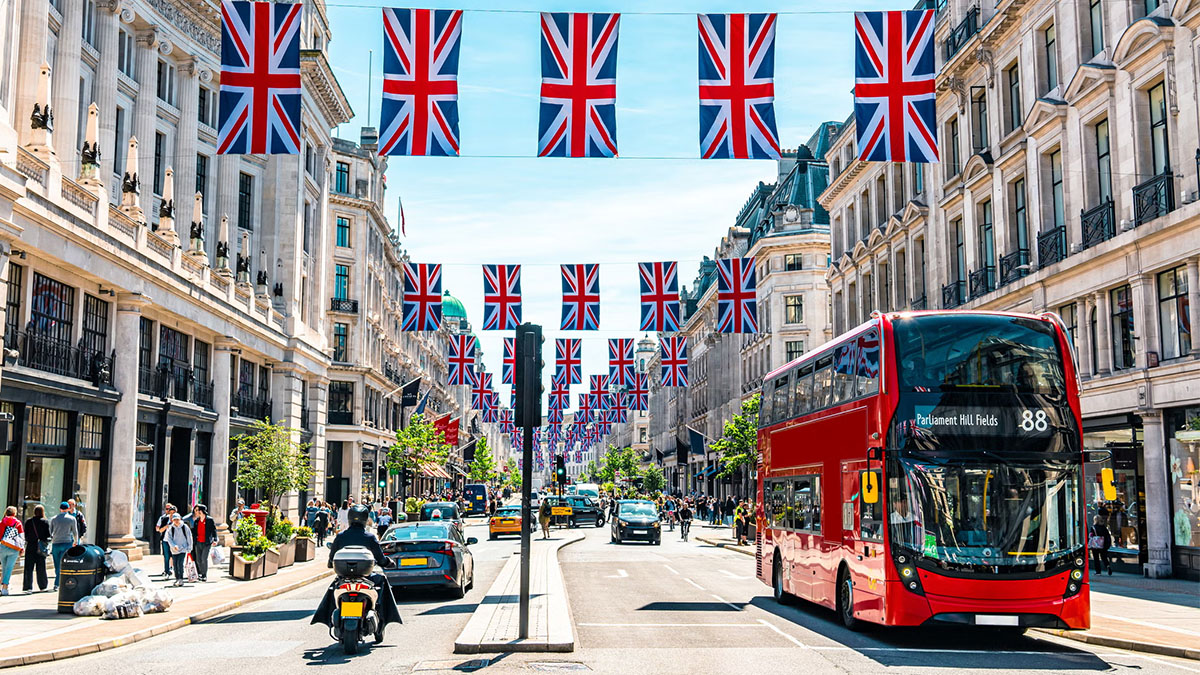UK tourism losing its global position
- 1/22/2025
- 404 Day

The World Travel & Tourism Council
(WTTC) today issued a stark warning to the UK Government: the UK’s successful
Travel & Tourism industry faces stagnation and long-term decline.
On the eve of the UK Government’s first Visitor
Economy Advisory Council, the global tourism body revealed data that shows
£60BN1 is at risk over the next 10 years, in lost tourism business.
While forecasts indicate short-term stability, the
long-term outlook is weak as the UK loses ground to European competitors.
The UK’s Travel & Tourism sector directly employs
almost the same number of people as the NHS2. It contributed £280BN to the UK
economy in 2024 (10.3%) and supported over 4.1MN jobs (11.3%)3. It also
contributes c.£100BN annually to the Treasury in tax revenues, yet successive
governments have shown little interest in Travel & Tourism.
The opportunity for growth is considerable. Global
Travel & Tourism is expected to grow 3.7% annually over the next 10 years,
compared to 2.4% for the wider global economy4.
However, in the UK, the future looks troubling. Over
the next five years, the UK is expected to have one of the lowest growth rates
in overnight international arrivals. It is set to lag other European tourism
powerhouses, such as Spain, Germany, and Italy, which place Travel &
Tourism at the heart of government decision-making.
WTTC has identified several key areas that urgently
require government action to unlock the sector’s full potential:
UK Travel & Tourism businesses are already
impacted by the recent increase in National Insurance, and higher than European
average VAT rates. With the increases in Air Passenger Duty (APD) and the
introduction of an ETA, a visa waiver which could rise from £10 to £16 per
visitor, the UK is pricing travellers out of the UK, toward other destinations
As the organisation charged with promoting tourism in
the UK, VisitBritain is seriously under-funded when compared to its competitors
around the world, which in many cases receive double the government investment.
Additional investment is crucial to continue attracting visitors, and ensure
the economic benefits extend beyond London
Global travellers are choosing other European
destinations, attracted by the tax-free shopping removed in 2021, which could
generate an estimated £3BN5 to UK Plc
The Treasury has mooted a central “hotel tax” that
will further deter travellers, could cost jobs, and cause major hotel investors
to look elsewhere
Without targeted reforms, these barriers will continue
to stifle competitiveness and deter high-value travellers from choosing the UK.
Julia Simpson, WTTC President & CEO said "The
UK is at a critical juncture. The Government is looking for growth and its
Travel & Tourism sector offers just that. As one of the country’s largest
employers alongside the NHS, contributing £280BN to the UK economy last year,
the sector has been misunderstood and poorly treated by successive governments.
“The Government cannot tax its way out of debt, it
needs to invest to grow. UK taxes are higher than many of its competitors –
VAT, no tax-free shopping, employers National Insurance, APD, and now a
potential new hotel tax, making the UK expensive to operate in and expensive to
visit.
“Tourism promotion in the UK is chronically
underinvested and it is arrogant to think tourists will always come to the UK.
I applaud the initiative by the new Minister for Media, Tourism, & Creative
Industries, Rt Hon Sir Chris Bryant MP, to get leaders round the table at the
Visitor Economy Advisory Council to tackle this and ensure Travel & Tourism
can continue to be a major engine to economic growth.
“The new government has a unique opportunity to change
the trajectory of Travel & Tourism in the UK. Despite the industry’s
resilience, years of government inertia are taking their toll. We welcome the
new government’s commitment to surpassing 50 million visitors by 2030, but this
can only be achieved with the right policies in place.”
Travel & Tourism is not just a cornerstone of the
UK economy – it’s a vital driver of tax revenue, job creation, and regional
development. Yet systemic challenges threaten to undermine its potential and
erode the country’s global tourism leadership.
Price Competitiveness: A Global Low
The UK ranks a shocking 113th out of 119 countries for
price competitiveness, according to the World Economic Forum’s 2024 Travel
& Tourism Development Index. Key issues include high VAT, lack of VAT-free
shopping, rising aviation taxes, and costly visa requirements – challenges
further compounded by relatively low government investment in marketing and
regional tourism.
UK: Losing Ground to Competitors
The UK’s overreliance on US visitors compounds this
issue. As the largest inbound market in 2019 and 2023, US visitors account for
a significant share of spending.
However, this dependence leaves the industry vulnerable
to economic and policy changes in one market. Expanding source markets is
essential for resilience and sustained growth.
Policymakers must act decisively. The choices made
today will determine whether the UK thrives as a global tourism leader or becomes
an also-ran in the face of growing international competition.








